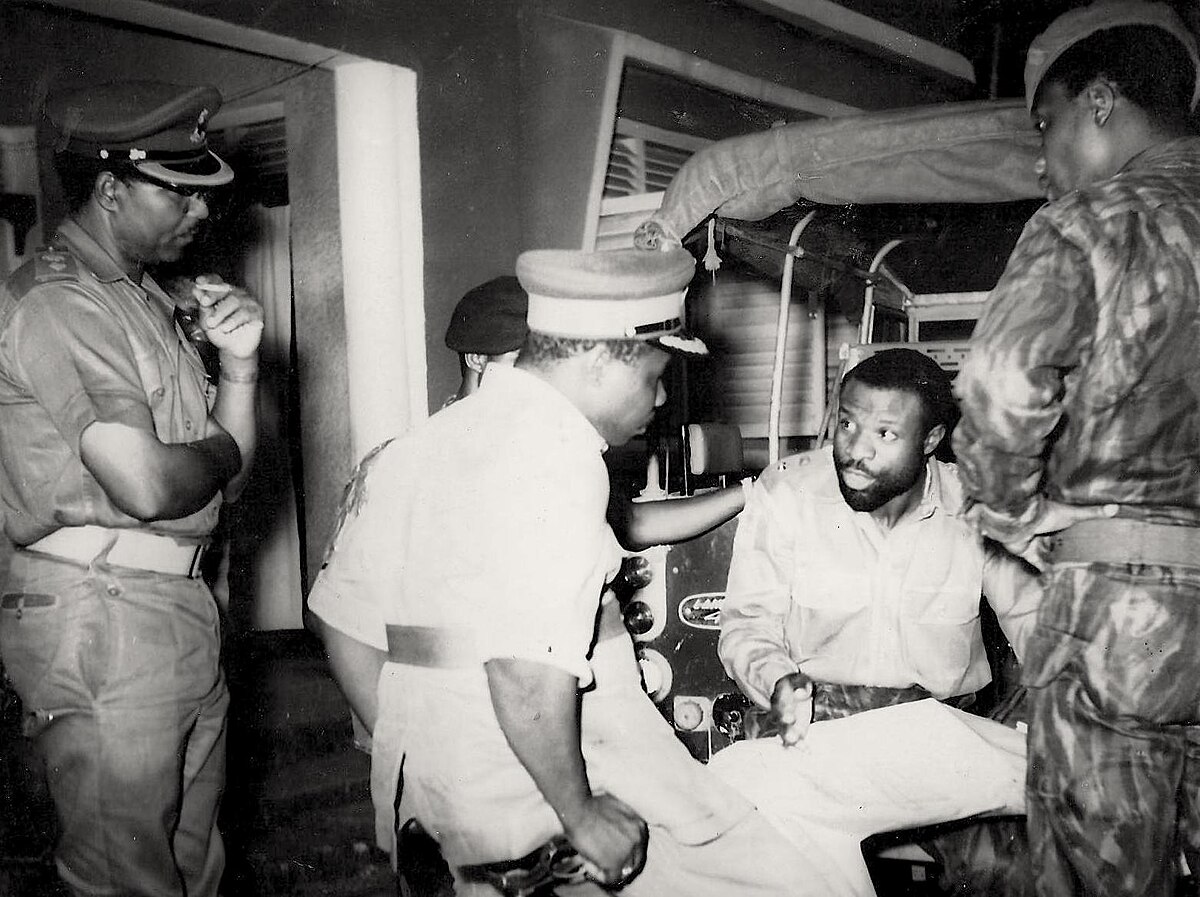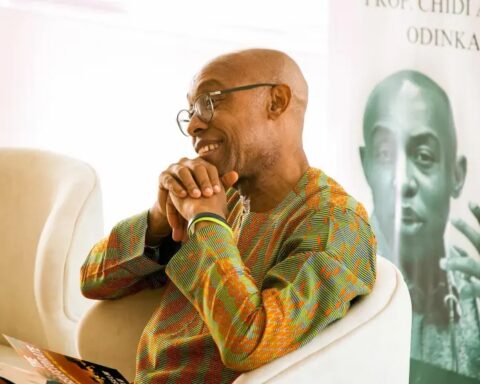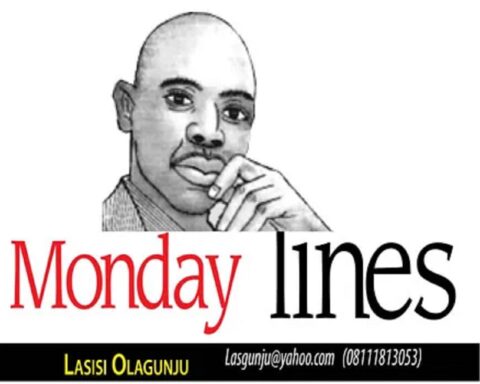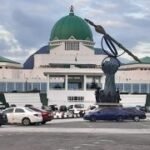There is a certain kind of silence that follows neglect not the soft silence of peace but the heavy quiet of things abandoned. If you have ever stood before a rusting gate that no one opens anymore, you will understand the feeling. A nation, too, can reach that point where its spirit squeaks like a neglected hinge, where the ordinary tools of its survival lie scattered, corroding in the sun. Nigeria, I fear, has reached that point of a republic built on deferred maintenance, a people mistaking endurance for progress.
An old folktale tells of a father and his family, a modest household whose entire livelihood depended on one farming hoe. The tool had history passed from his own father, seasoned by years of honest sweat. One evening, as the season of planting drew near, he called everyone to the courtyard. He held up the hoe like a sacred relic and warned, “This is our breath. If it breaks, hunger will not knock; it will live with us.” The family nodded solemnly. The children promised, “We shall care for it.” But “we” meant no one. Each assumed the other would do the work. A few remembered for a while lifting it out of the rain, cleaning it half-heartedly until eventually it was left to the mercy of sun and storm. The wood began to crack. Rust crept along the blade like a slow verdict. By harvest season, it was useless. They threw it away.
At first, neighbours shared their tools and their food, but pity, like patience, has a lifespan. The family soon found itself hungry, humiliated, and dependent. What was once their pride a simple hoe had become the symbol of their undoing.
That folktale could have been set anywhere in the world, but its resonance in Nigeria is uncanny. We, too, once held a tool that could have tilled our collective future, the ideals of nationhood, the machinery of state, the dignity of labour, the integrity of public institutions. We, too, made the same promise: “We shall care for it.” And like those children, we grew distracted, self-absorbed, certain that someone else would take responsibility. The hoe our commonwealth now lies in ruin.
You can see its fragments everywhere. The handle, that which should give grip and direction is our educational system, splintered by neglect. In classrooms where fifty students share one textbook, teachers improvise survival. Children learn by rote what the world has already forgotten. We produce degrees but not competence; graduates but not citizens. Each administration announces reforms that collapse before the ink dries. Like the eldest son in the folktale, they gesture toward care but never commit to the slow labour of restoration.
The blade the sharp edge that should break the soil and feed the people is our economy. Once promising, now dulled by corruption, policy inconsistency, and the moral fatigue of leadership. We oscillate between oil dependence and shallow diversification, addicted to consumption but allergic to productivity. A country so blessed with human potential somehow imports everything from toothpicks to ideas. Like the family that threw away its only tool, we now depend on neighbours’ kindness: loans, diaspora remittances, foreign aid. And like those neighbours, the world has begun to tire of us.
The joint that once held handle and blade together, the civic trust that binds citizens to institutions are long broken. We no longer believe in the republic or in each other. We treat the national anthem as background noise. Corruption is not shocking; it is atmospheric. The average Nigerian has seen too many promises decay to take reform seriously. And so, we improvise surviving on hustle, prayer, and irony. The hoe rusts; we crack jokes about it.
Consider our public service the great machinery of the state. In the 1960s and 70s, a Nigerian civil servant’s word carried weight; a letter from a ministry bore authority. Today, files vanish, salaries delay, ethics is negotiable. The service that once held the republic together now eats from the same trough of decay. Or take our power sector: trillions spent, darkness still sovereign. Every new government comes like a child rediscovering the rusted hoe, promising to fix it, only to abandon it when the photo-ops end.
The story repeats across the landscape. We build roads that collapse before commissioning, hospitals without syringes, universities that function only between strikes. Each failure is explained away with statistics and God. We are a people deeply spiritual yet strangely incapable of moral arithmetic. We pray for miracles where maintenance would suffice.
The worst part of neglect is not the decay itself but the normalization of decay. Once the hoe began to break, the family adjusted their eyes to it. They stepped around it, then over it, until it became invisible. So too with us. We have built an entire psychology of adjustment generator hums as soundtrack, potholes as metaphors, bribery as lubricant. We stumble, bleed, curse, and keep moving. What once would have been scandal now evokes only shrugs.
When the broken hoe began injuring the children, the family finally decided to throw it away. In Nigeria, our dangerous hoe is insecurity. The very instrument meant to protect us the state’s monopoly of force has turned against its owners. We trip over it daily: kidnapping on highways, bandits in classrooms, assassins on ballot day. In the North, farmers flee their fields; in the South, youth flee the country. The state, overwhelmed, alternates between denial and performative outrage. The hoe is not just broken; it wounds.
And when the family turned to neighbours for help, their story entered its final tragedy. We, too, turn outward to the IMF, to foreign investors, to the diaspora. But neighbours cannot adopt your irresponsibility. Aid may soothe symptoms, but it cannot heal a conscience. A country that refuses to care for its own hoe will always be a beggar in the marketplace of nations.
I recall a conversation with a friend who teaches in a rural school in Anambra. He told me how he sometimes buys chalk with his own money because government supply never arrives. “If I wait,” he said, “the children will lose another week.” That, in miniature, is what it means to mend the hoe one honest act against the tide of neglect. But his story also indicts a system that leaves virtue to the mercy of personal sacrifice. We cannot build a nation on the heroism of individuals alone; institutions must carry their share of conscience.
And conscience, perhaps, is where our famine begins. When a people lose the moral instinct to feel shame for neglect, they are already hungry. Look around: we celebrate thieves as philanthropists, elevate incompetence through ethnicity, forgive betrayal with the next election cycle. We have turned public trust into private hustle. Like those children, we perform the ritual of agreement “we shall care for it” but our hands remain folded.
There is a story within the story: years ago, during the fuel subsidy protests, thousands took to the streets demanding accountability. It was raw civic energy the closest we have come in decades to collective ownership of the hoe. Yet that energy was quickly hijacked, diluted, traded for political tokens. The protest leaders became consultants; the slogans became hashtags. The hoe went back into the rain.
Neglect breeds cynicism, and cynicism is a slow killer. It tells the young that effort is futile, that nothing changes. And so, our brightest now migrate not merely for money but for meaning. At airports, you can feel the ache of a country exporting its own future. The diaspora remittances they send back are the modern version of the neighbours’ food in the folktale temporary relief for a house that refuses to fix itself.
Yet, every so often, something happens that reminds us the hoe is still ours. When citizens organize crowdfunding for hospitals, when communities fix roads abandoned by government, when youths create tech startups that solve problems officials cannot pronounce these are flashes of ownership, fragile yet luminous. They prove that the instinct to care is not dead, only buried beneath fatigue.
Still, flashes are not enough. A nation cannot live on improvisation. It must institutionalize care, make accountability structural, not accidental. That means teaching civic responsibility from childhood, rewarding maintenance as much as innovation, punishing corruption not as spectacle but as hygiene. It means leaders who show up before crises, not after. It means citizens who see the public good as personal inheritance, not a distant abstraction.
If this sounds idealistic, remember that neglect was also a choice slow, deliberate, repeated. So can care be.
The deeper tragedy of that folktale is that the family’s hunger was avoidable. All it would have taken was one person to take the father’s warning seriously, to assign clear responsibility, to oil the blade and store the hoe under shade. That tiny discipline would have preserved their sustenance. But indifference is contagious, and responsibility, when delayed, becomes expensive.
Nigeria stands precisely there at the hinge between repair and ruin. The rains have come; the soil waits. The hoe lies there, rusted but not beyond redemption. But we are still arguing about who should lift it. Politicians point to citizens, citizens blame politicians, elites blame the masses, the masses blame fate. The tragedy is mutual, the hunger shared.
Every generation inherits the hoe it deserves. If we continue this ritual of blame, our children will not even have rust to inherit. They will have only stories of how once there was a tool that fed the family, and how everyone agreed to care for it, and how no one did.
So, let us speak plainly: nations do not collapse from poverty or diversity. They collapse when responsibility becomes optional. The cost of neglect is cumulative in the form of one unpatched road, one unpunished theft, one unkept promise until the compound is littered with broken parts. By then, even movement becomes dangerous.
But there is still a chance to begin again, and it starts not in Abuja or the state houses but in the quiet corners where conscience still whispers. It starts when the teacher buys chalk without waiting for supply, when the civil servant files documents honestly, when the policeman refuses a bribe, when the voter insists on integrity. Small acts, yes but every repair begins with one hand deciding to hold the hoe again.
If we could gather, once more, as that family did, and look at the rusted tool of our common life, perhaps under the light of truth this time we might hear the father’s warning differently. Not as a threat but as a reminder that survival is an act of maintenance. That to be Nigerian should mean not merely to endure but to tend, to repair, to account.
For now, the hoe still lies there, waiting. The rains are heavy. The soil is ready. What remains uncertain is whether we are.
And if the silence of our neglect continues, if we keep mistaking pity for providence, then one day hunger not just of food but of meaning will indeed live with us. But if we can still find, within our noise and our fatigue, the courage to care, then perhaps this old parable will not end in ruin. Perhaps the sound that fills our courtyards again will not be the clang of decay but the steady rhythm of repair indicating the sound of a people reclaiming their breath.
By Dr Charles Obiajulu Ugwu write from Lagos
Follow us on all social media platforms @dailyquery for news and analyses around the globe.


























